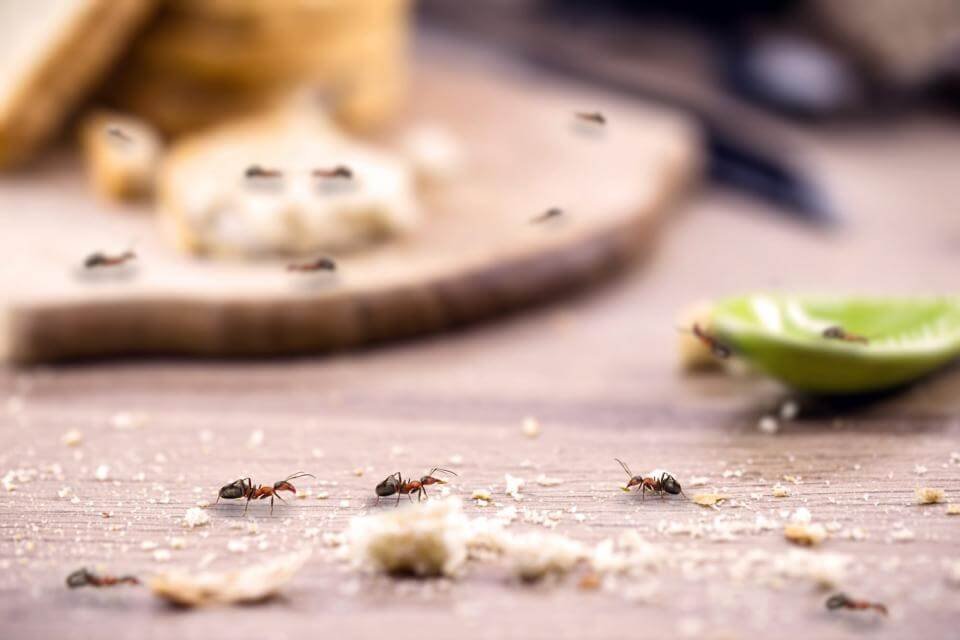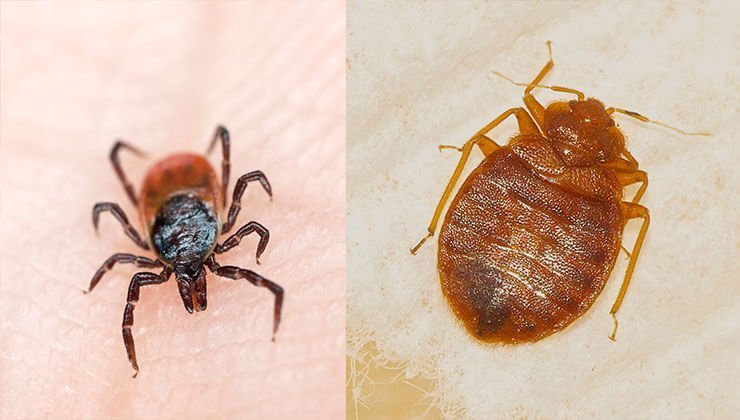One of the most prevalent types of pests found in homes, ants may be a problem both inside and outside. Despite their seemingly innocuous appearance, ant infestations can quickly spiral out of control, posing serious hazards to both your property and your family’s health.
Some types of ants, for instance, are harmful because they can contaminate food, sting or bite humans, and others are destructive because they build their nests in masonry or concrete. In order to stop further problems and infestations, ant control must be prioritized.
Impacts of Toxic Chemical Use
Even though many pest control treatments are successful in getting rid of ants, they frequently include toxic chemicals that are bad for both you and the environment. Skin irritation, respiratory difficulties, and even cancer have all been linked to exposure to these substances.
Further, these toxins can even kill off helpful insects, animals, and even humans. Pests may develop resistance to chemical insecticides if they are used excessively.
Advantages of a Natural Approach
As comparison to the use of toxic pesticides, natural ant control methods present a more preferable and environmentally benign option. To eradicate or deter ants, natural ways use non-toxic substances like vinegar, baking soda, or aromatic oils. If done well, these strategies can be just as effective as chemical pesticides while being safer for people and the environment.
In addition to being more cost-effective than commercial pest control treatments, natural ant control options are also often readily available in your house or local store. If you want to get rid of ants without risking your health or the health of the environment, try some of the natural techniques available there.
Related: Ticks vs Bed Bugs: Who is the Most Dangerous Pest
Identify the Type of Ants
Common Types of Ants
Ants come in a wide variety of species, each with its own set of quirks and routines. When it comes to ant infestations, some of the most prevalent species that might invade your house are:
Argentine Ants
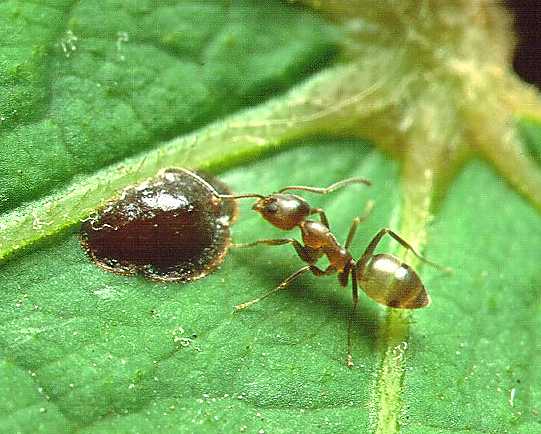
These ants are rather small and dark in appearance, and they frequently establish big colonies. They are often enticed by sugary foods and might be challenging to keep under control.
Carpenter Ants
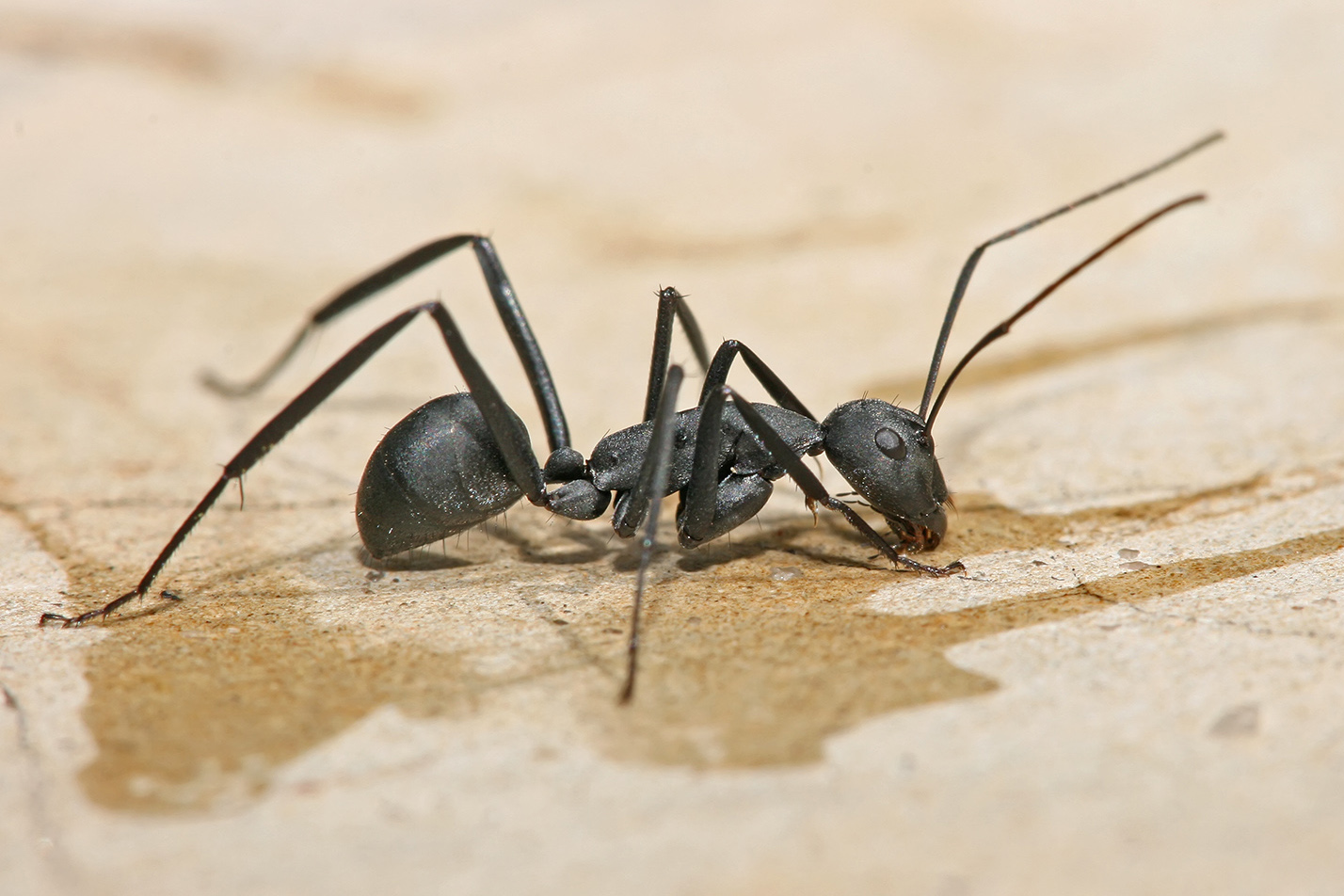
Large ants that can be either black or red in colour and are capable of doing substantial damage to timber structures. They are more at home in damp environments and can make their nests in wall cavities or beneath floorboards.
Odorous House Ants
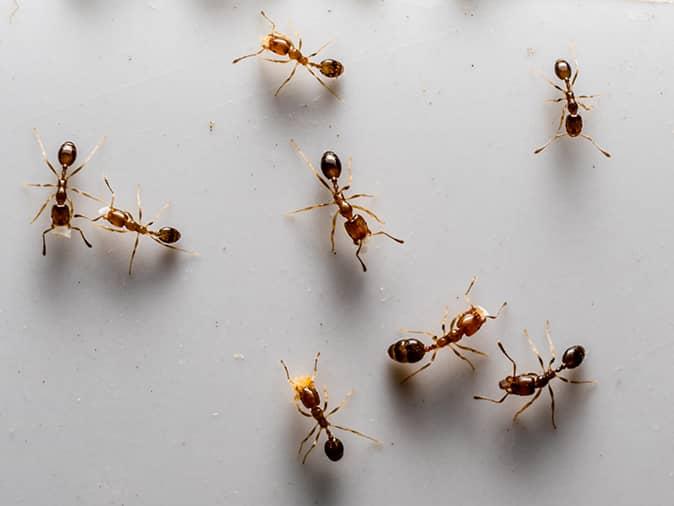
When crushed, these ants have a pungent stench that is unpleasant, and they are tiny and brown in colour. They are drawn to foods that are sugary or oily in texture, and their nests can be located in the spaces between walls or beneath floors.
Pavement Ants
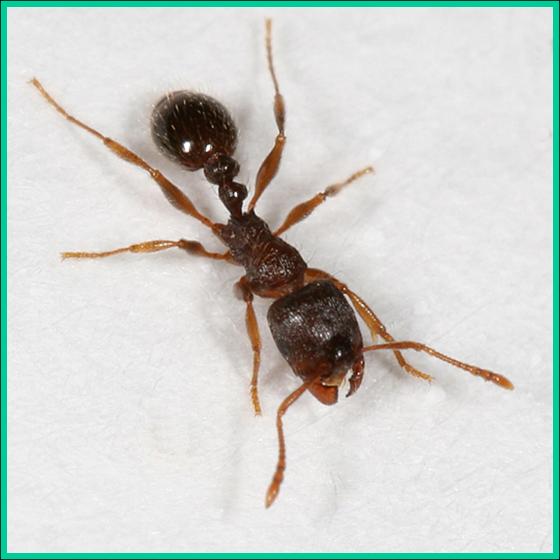
These ants are rather little and dark brown in colour. Their nests are typically found outdoors in crevices or under rocks. They are drawn to meals that are sugary or oily, and they have been known to invade homes in quest of food.
Pharaoh Ants
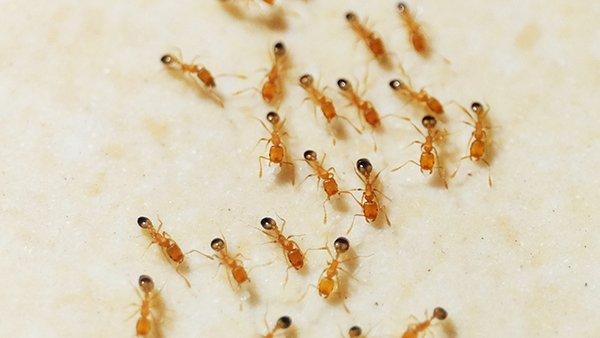
They are very little ants with a pale coloration that are frequently discovered in hot and humid areas. They are drawn to sugary foods and can be difficult to control because of their capacity to establish many colonies at once.
Identifying your Home’s Ant Species
If you want to get rid of the ants in your home for good, you need to know what kind of ant you’re dealing with. Ant species can be determined by studying their outward appearance, social structure, and nesting patterns. Remember to keep an eye out for these:
- Size: Measure the size of the ants to determine if they are large or small.
- Color: Note the color of the ants to determine if they are light or dark-colored.
- Trail: Observe if the ants are following a trail and where it leads to.
- Nesting location: Determine where the ants are nesting, such as in wall voids, under floors, or outside.
- Food preferences: Observe what the ants are attracted to, such as sweet or greasy foods.
After determining whatever kind of ant you’re dealing with, you can employ the most appropriate form of ant control. Certain species may be drawn to sugary baits, while others may have a strong preference for protein-based offerings. Time and money can be saved by employing the most efficient method of ant management if the correct species is identified.
Natural Ways to Get Rid of Ants
By Using Essential Oils
Natural ant repellents made from essential oils are all the rage. Because they interfere with the ants’ ability to smell and communicate, you may be able to prevent them from entering your home.
1. Peppermint Oil
Ants are repelled by the powerful, clean aroma of peppermint oil. To repel ants with peppermint oil, combine 10 to 15 drops of oil with a cup of water in a spray container. Use the spray around your home’s entry points, such as windows and doors. The combination can also be applied directly to ant trails and nests in order to deter them.
2. Lemon oil
Another essential oil that can be used to repel ants is lemon oil. Ants are repelled by its pungent citrus aroma, and its acidic qualities can break down their exoskeletons. Use 10-15 drops of lemon oil with one cup of water in a spray bottle for an effective ant repellent.
Use the spray around your home’s entry points, such as windows and doors. The combination can also be applied directly to ant trails and nests in order to deter them.
3. Tea tree oil
Having inherent insecticidal characteristics, tea tree oil is an efficient ant repellant. To repel ants with tea tree oil, combine 10 to 15 drops of oil with a cup of water in a spray container.
Use the spray around your home’s entry points, such as windows and doors. The combination can also be applied directly to ant trails and nests in order to deter them.
By Using Borax
Borax, a common household mineral, can be used to effectively eradicate ant infestations. The ants’ exoskeletons are broken, which can lead to dehydration and eventually death.
1. How Borax Works Against Ants
When consumed by ants, borax has a lethal effect on them. The ants will bring the borax back to their colony and feed it to the other ants, which may eventually result in the death of the colony as a whole.
2. How to use borax
Mix one teaspoon of borax with one cup of sugar and one cup of warm water to repel ants. Place cotton balls or cardboard that have been soaked in the mixture near ant paths and nests. The sugar will entice the ants, and once they’re interested, they’ll transport the borax back to their nest.
By Diatomaceous Earth
Earth formed from the fossilized remains of diatoms is called diatomaceous earth, and it is ground into a very fine powder. Ants can be eradicated from your garden with the help of this all-natural insecticide.
1. How diatomaceous earth works against ants
Because of its ability to absorb water, diatomaceous earth can cause the ants’ exoskeletons to dry out and crack, which can cause death. As an abrasive, the powder can also harm the ants’ skin.
2. How to use diatomaceous earth
Diatomaceous earth can be used to get rid of ants by spreading a thin layer of the powder around the regions where they have been seen trailing or nesting. Diatomaceous earth paste can also be made by combining the powder with water to apply to ant trails and nests.
By Using Vinegar and Lemon Juice
Two of the best all-natural ant killers are vinegar and lemon juice.
1. How vinegar and lemon juice work against ants
Because of their acidity, both vinegar and lemon juice might impair the ants’ ability to smell and communicate with one another. Moreover, the potent aroma can prevent ants from entering the house.
2. How to use vinegar and lemon juice
The most effective way to utilize vinegar or lemon juice to get rid of ants is to combine equal portions of the liquid with water in a spray bottle. Use the spray around your home’s entry points, such as windows and doors. The combination can also be applied directly to ant trails.
Repelling the Return of Ants
The abundance of food and water inside a house is a major draw for ants. Use these measures to keep ants at bay:
- Seal entry points: A single ant can squeeze through a space the size of a human hair, allowing them easy access to your home. The only way to keep them out is to ensure that all possible entry sites are sealed, including around pipes and wires and around doors and windows.
- Keep your home clean and tidy: Crumbs, spills, and other food detritus can serve as a magnet for ants. Keep your kitchen and eating area spotless on a regular basis. Keep the place clean by sweeping or vacuuming the floor, wiping down the counters and tables, and taking out the garbage frequently.
- Store food properly: Keep perishables refrigerated or in airtight containers. Make sure everything is well secured, as ants can quickly get into unprotected bags and containers.
- Remove sources of standing water: Ants can’t thrive without water, so make sure there’s none sitting around your house. To conserve water, turn off running water when not in use, empty pet bowls, and don’t soak your plants.

